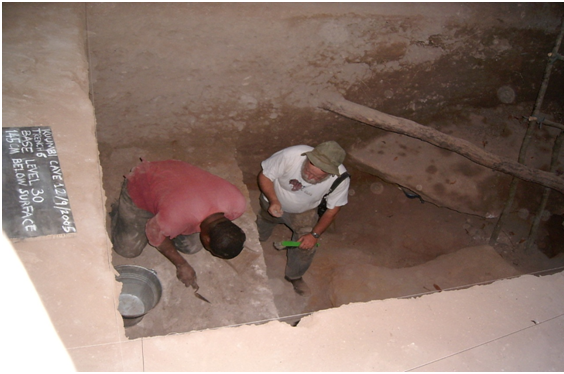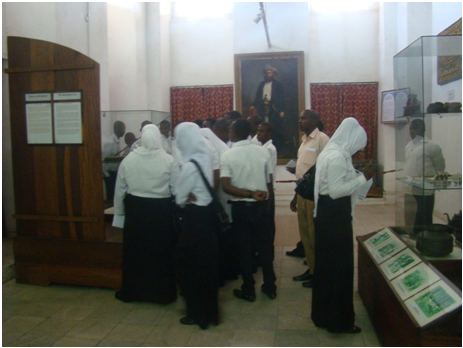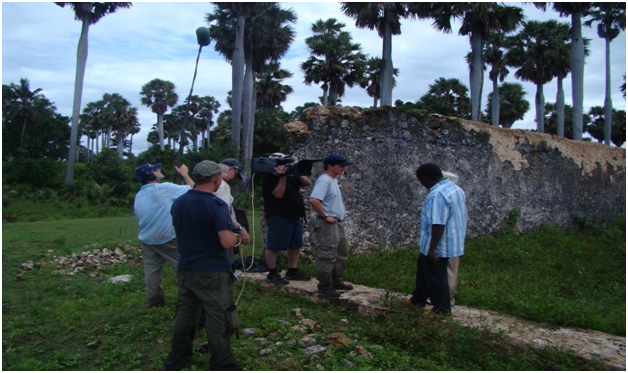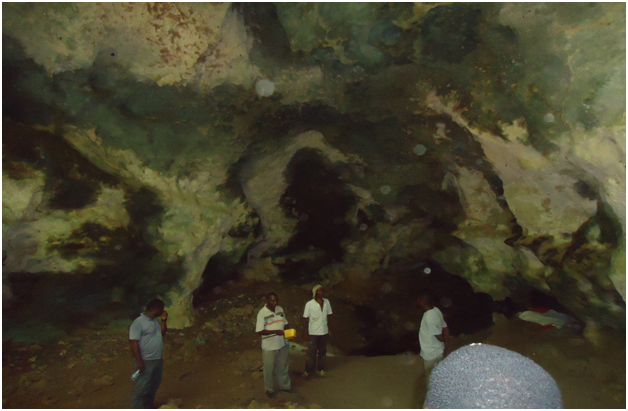
DEPARTMENT OF MUSEUM AND ANTIQUITIES
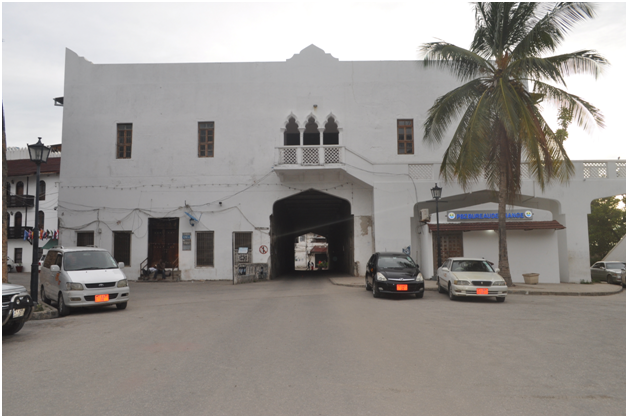
The Department of Museums and Antiquities has a long history facing many changes since in 1900s during the British colonial period. Major Pearce wrote the book Zanzibar, Island Metropolis of East Africa and Stockley who wrote Geology of Zanzibar and Palaentology of Zanzibar. These two put in writing a lot of news about history, Culture and nature. At that time Zanzibar was a Colonial hub to arrange their strategies concerning about East Africa, so many letter and archives written.
After the First World War in (1914 – 18), the Peace Memorial Museum (Beit – el – Amani) was started in 1925, this museum was history of culture specialized in (ethnology) and in 1930 another museum of natural history property established. At the middle in 1927 antiquities and historical sites Act was founded.
In 1954 the Government considered of set up the Department of Archives and Museums and the following year in 1955 the proposer set up under Dr. Spurrier. After him Mr. Thompson and another Europeans followed. After the Revolution in 1964 Museums was headed by Mr. Masheko Ali, at that time the Department was renamed including Antiquities.
After that, professional problems started, and in 1984 America helped rebuilding professionalism by bringing Dr G. A. Davis, Director of Illinois State University Museum to propose solution.
Department of Archives, Museums and Antiquities under the Director Mr. Hamad H. Omar who replaced Mrs. M. Alban. In 1987 Department included component of Tourism under the Ministry of Information, Cultural and Sports. In 1990 the Department was under the President’s Office. In 2000 the Department was under the Ministry of Education. In 2010 The Department was divided in two Institutions – Department of National Archives under President’s Office and Department of Museums and Antiquities under the Ministry of Information.
EMPLOYEES.
Department has 116 employees among them are 62 men and 54 women. In Unguja has 102 employees and 14 in Pemba.
MISSION
The Department mission :-
a) To conserve historical site, monuments and museums for the purpose of serving treasure of the history and culture.
b) To continue history and archaeology research.
c) To providing education historical and culture information to the researchers and learners for academic purpose.
d) To use resources as attractions for the Government income.
VISION
DEPARTMENT LAW.
Antiquities law control with the Act No 11 in 2002. The Museums Law is in the process.
The Museum Education Unit has following duties.
1. To organize, manage and offer tours to the visitors and students visiting to the museum and historical sites.
2. To give lectures or instructions to the visitors and learners attending the museums.
3. To assist and guide the researchers who are seeking information relating to Zanzibar history and culture.
4. To provide accurate required historical and Culture information to the researchers and learners for academic purpose.
5. To organize, supervise and take care of the museum exhibitions incorporation with other museum sections.
6. To conduct researches in order to collect valuable information for educational programs.
7. To motivate the people within and outside the country to visit and use our museums and historical sites for enjoyment, learning, leisure and rest.
To inspacte Zanzibar monuments and ruins , and looking for the devolopment, challanges and advice the department what should be taken to make site in safe condition. Also, another functions is to visit Zanzibar Historical sites and report as quik as possible in case there are the destruction , demage accident or illegal taking of Historical area or ruins
CONSERVATION:
DOCUMENTATION:• The duties of documentation Unit: To register all artifacts most concerned with documentation and record keeping. This documentation includes information about an object's condition, its accession number or identification number and its status in the museum, provenance, materials, and all of its movement within the museum or out on loan. • • When an object arrives at the museum for the first time as a prospective addition to the collection, a registrar immediately begins the documentation and tracking process by assigning a temporary identification number and assembling records that include the object's condition, date of arrival, the reason for its arrival at the museum, and a photograph documenting its physical appearance. This information follows the object through the acquisition process, tracking its movements. If the museum decides to accept the object, the registrar will then update the record, assigning a permanent accession number to the object. • Loans: Objects are loaned between museums for a variety of reasons, typically for special exhibitions. As with acquisitions, the registrar assigns a temporary identification number to objects on loan to the museum, documents their condition, and creates a file to follow the object's movement while it is in the museum. Registrars are also present at the loading dock upon arrival to supervise the unloading, condition of packing material, and ensure that the objects are handled properly. In the case of outgoing loans, the registrar documents which objects are leaving the museum and either carries out or oversees their packing for shipment, and loading into the shipping vehicles.
The roles of Markerting, Publicity and Information Technology. 1 To undertaken all Publicity and Markerting activities. 2 To undertake , develop, and update the departmental website and any others information devices. 3 To create, plan ,propose and take necessary measure for the Department. 4 To link and corperate with departmental units and all tourism agencies inboosting mutual relationship. 5 To creat the awareness to the whole communities. 6 To organise TV's and Radio's programms. 7 To arrange domestic tourism tourisms trips to museums and Antiquities destination. 8 To organise and participate in exhibition. 9 To undertake regular advertisement through magazines, flyers, brochures, barners, posters, calendes, maps and any other means od media reacheable by the domestic and International communities. 10 To providing routing working and directive reports. 11 To prepare working and budget plan according to the requirement.
